IP and Information Law Speaker Series –
Spring 2019
[in conjunction with the Intellectual Property Advanced Topics Seminar]
Loyola Law School's Intellectual Property and Information Law Speaker Series meets on Mondays at noon in Burns 240. Each talk ends just before 1:00pm, including a period for Q&A. The series is open to all students, faculty, and alumni interested in IP, entertainment law, and technology issues. Snacks and/or a light lunch will be served. Alumni and other practitioners interested in attending any of the series should RSVP to Bridget.Klink@lls.edu. Papers will be available to talk attendees (other than faculty and IP seminar participants) by request.
[The IP and Information Law Speaker Series is held in conjunction with the IP Seminar; students enrolled in the seminar will have an additional class meeting with each speaker to explore the speaker’s paper in greater depth.]
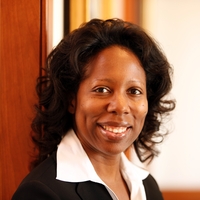
28 January
“Thou Shalt Not Steal”: The Morality of Compulsory Licensing as an Access to Medicines Tool
Margo A. Bagley, Emory University
Margo A. Bagley is an Asa Griggs Candler Professor of Law at Emory University School of Law. She returned to Emory in 2016 after ten years at the University of Virginia School of Law. Professor Bagley is an advisor to the Government of Mozambique in World Intellectual Property Organization (WIPO) matters; she is also a member of the Convention on Biological Diversity’s Ad Hoc Technical Expert Group on Digital Sequence Information and Genetic Resources. She has taught international and comparative patent law courses in several countries and has published widely on international IP issues. A chemical engineer by training, Professor Bagley worked in industry for several years prior to law school and is a co-inventor on a patent for reduced fat peanut butter.

11 February
Intellectual Property and the Myth of Nonrivalry
James Y. Stern, William and Mary College
Professor Stern teaches and writes about property, intellectual property, privacy, and private law theory. He has published with Cambridge University Press and the Harvard, Michigan, California, and Virginia Law Reviews. Professor Stern has been awarded the Thomas Edison Fellowship by the Center for the Protection of Intellectual Property, the Temple Bar Scholarship by the American Inns of Court Foundation, and the Plumeri Award for Faculty Excellence at William & Mary. Professor Stern served as a law clerk to Justice Anthony Kennedy and Judge J. Harvie Wilkinson. He received his J.D. from the University of Virginia and his A.B. from Harvard.
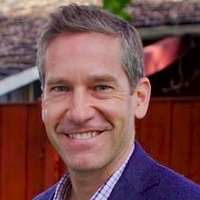
25 February
Rethinking Post-Sale Confusion in Trademark Law
Kal Raustiala, UCLA
Kal Raustiala is a professor at UCLA School of Law and the UCLA International Institute; his areas of research include international law, information policy, and intellectual property. His recent publications include "Governing the Internet," American Journal of International Law (2016); and "Fake It Till You Make It: The Good News About China’s Knockoff Economy,” Foreign Affairs, (July/August 2013). His most recent book, The Knockoff Economy: How Imitation Sparks Innovation (Oxford, 2012), written with Christopher Sprigman, has been translated into Chinese, Korean, and Japanese. A graduate of Duke University, Professor Raustiala holds a J.D. from Harvard Law School and Ph.D. in political science from the University of California, San Diego.

11 March
Retheorizing the Impact of Intellectual Property Rights on Industry Structure
Peter Lee, University of California at Davis
Peter Lee teaches and writes in the areas of patent law, innovation, and technology transfer. His recent works have appeared in The Yale Law Journal, Stanford Law Review, California Law Review, Duke Law Journal, Michigan Law Review, and other leading journals. Professor Lee has received numerous awards for his scholarly work, including the UC Davis Chancellor’s Fellowship and the Samsung-Stanford Patent Prize. He received his undergraduate degree from Harvard and his J.D. from Yale Law School, where he was a member of The Yale Law Journal. Professor Lee joined the UC Davis faculty after clerking for Judge Barry G. Silverman of the Ninth Circuit Court of Appeals.
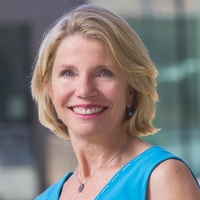
25 March
Screen credits, the Writers Guild, and private IP rights in markets for labors and ideas
Catherine Fisk, UC Berkeley
Catherine Fisk is the Barbara Nachtrieb Armstrong Professor of Law at Berkeley Law. She teaches labor and employment law, legal profession, and civil procedure. Her writings on employment and IP include Writing for Hire: Unions, Hollywood, and Madison Avenue (Harvard University Press 2016) and Working Knowledge: Employee Innovation and the Rise of Corporate Intellectual Property, 1800-1930 (UNC Press 2009). A graduate of Princeton University, Professor Fisk earned her J.D. from the University of California, Berkeley, and her LLM from the University of Wisconsin.

8 April
Copyright Arbitrage
Kristelia A. García, University of Colorado
Kristelia A. García is an associate professor at the University of Colorado Law School, where she teaches copyright, trademark, and property. She also serves as Director of the Content Initiative at the Silicon Flatirons Center for Law, Technology, and Entrepreneurship, where she hosts an annual copyright conference. Her research is focused on the intersection of law, technology, and economics, with a particular focus on efficiency, competition, and private ordering. Prior to joining academia, Professor García practiced at Quinn Emanuel and Wachtell Lipton; she has also worked at MySpace Music and the Universal Music Group. Professor García received her B.A. in Economics from Columbia University, and her J.D. from Yale Law School.
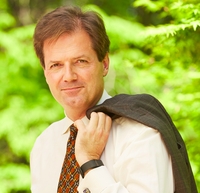
22 April
Investment Treaties and Intellectual Property: Eli Lilly v. Canada and Phillip Morris v. Uruguay
Daniel Gervais, Vanderbilt University
Daniel Gervais holds the Milton R. Underwood Chair in Law at Vanderbilt, where his research focuses on international intellectual property law. Prior to joining academia, he practiced law as a partner with the technology law firm BCF in Montreal, served as a legal officer at the World Trade Organization (WTO), and was head of the Copyright Projects section of the World Intellectual Property Organization (WIPO). Professor Gervais is the author of The TRIPS Agreement: Drafting History and Analysis, a leading guide to the text that governs international intellectual property rights. Before joining Vanderbilt Law School in 2008, he served as acting dean of the Common Law Section at the University of Ottawa. He is currently President of the International Association for the Advancement of Teaching and Research in Intellectual Property (ATRIP).
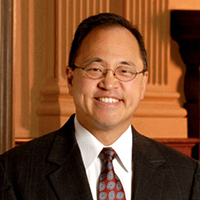
4 February
Are Ideas Independent from Expression?: Implications of Linguistics and Cognitive Science for Copyright
Christopher Yoo, University of Pennsylvania
Christopher Yoo is the John H. Chestnut Professor of Law, Communication, and Computer & Information Science at the University of Pennsylvania, where he has taught since 2007. Prior to joining the Penn faculty, he taught at Vanderbilt University Law School. Professor Yoo’s recent books include Regulating the Cloud: Policy for Computing Infrastructure (co-edited with Jean-Francois Blanchette, 2015) and The Dynamic Internet: How Technology, Users, and Business are Transforming the Network (2012). His forthcoming scholarship includes Copyright and Personhood Revisited, 2018 U. Ill. L. Rev. (forthcoming). Professor Yoo received his A.B. from Harvard, his J.D. from Northwestern, and his M.B.A. from UCLA.